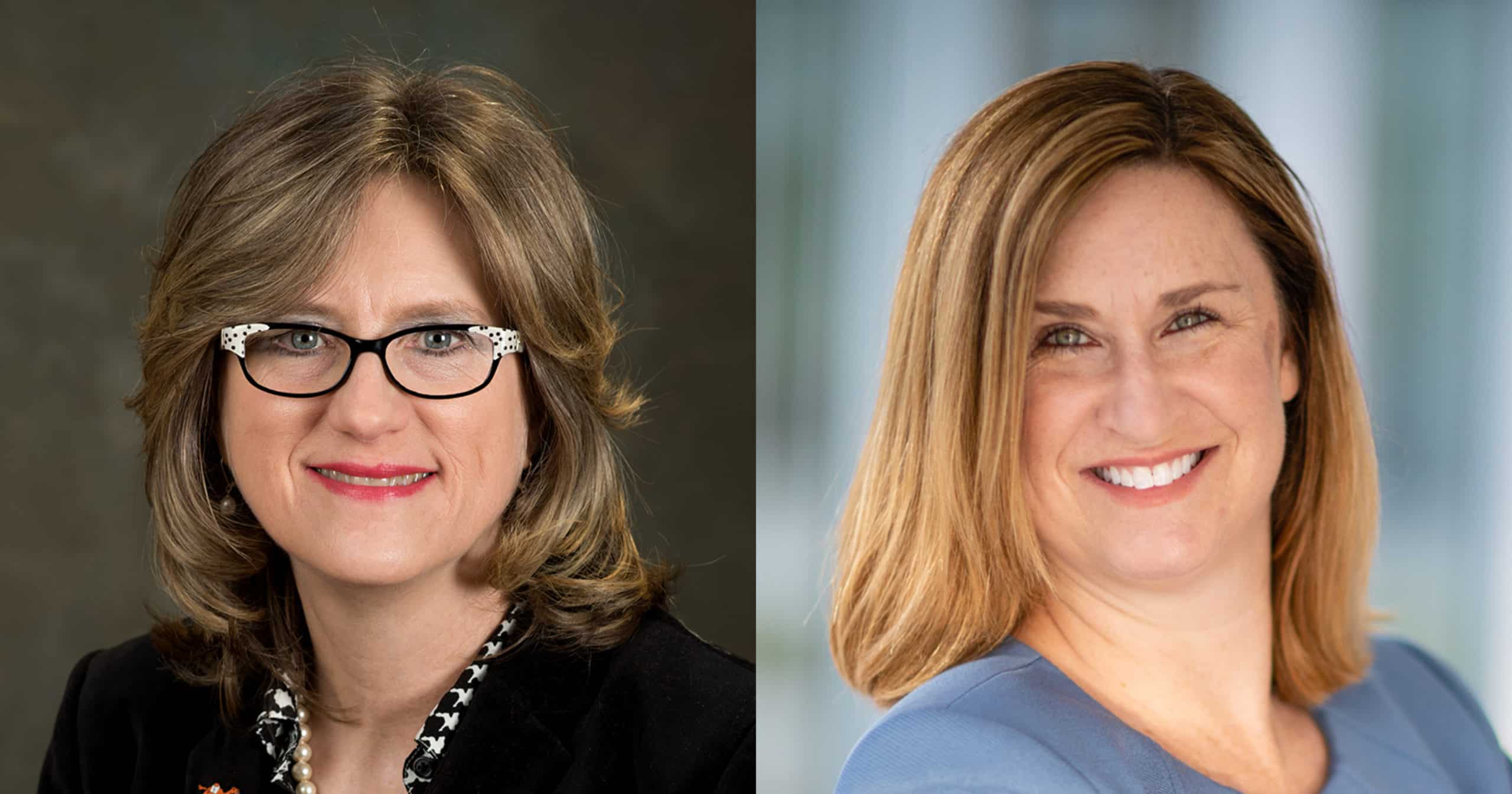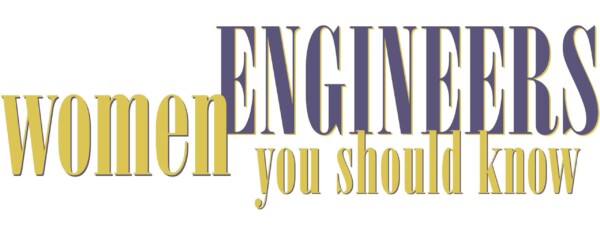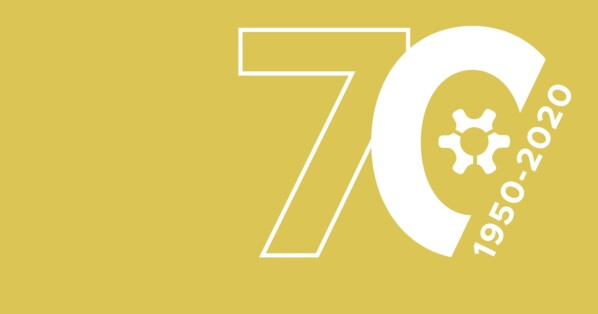This year’s look at women engineering leaders in academe highlights female deans of engineering at two very different universities just over 200 miles (320 km) away from each other. Fairly close geographically, the distance between them in terms of history, size, course offerings, and culture places them poles apart. Virginia Tech, a land-grant university in southwest Virginia, is the fifth-largest producer of bachelor’s degree engineers in the United States. Campbell University in central North Carolina graduated its first class of 33 engineers this spring.
SWE Magazine thought it would be interesting to compare perspectives of a leader at one of the largest and most well-established engineering programs with the leader of a brand-new startup.
Both engineering programs are led by women and focused on educating engineers for the 21st century. Julia Ross, Ph.D., joined Virginia Tech as dean of engineering in 2017 after serving as dean at the University of Maryland, Baltimore County. Jenna Carpenter, Ph.D., became the founding dean of engineering at Campbell University in 2015 after a long career at Louisiana Tech University, where she served as associate dean.
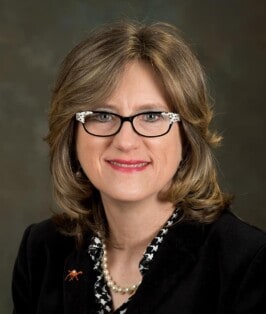
“I discovered a note that my son, then an undergraduate in engineering at my institution, had left for me. In it, he told me not to worry so much about them. That they could all see how hard I worked, both at home (taking care of not only them, but my two elderly and ill parents) and at my job, and that they were very proud of me. …We forget that our families are resilient and cheering us on.”
– Jenna Carpenter, Ph.D., founding dean and professor of engineering, Campbell University
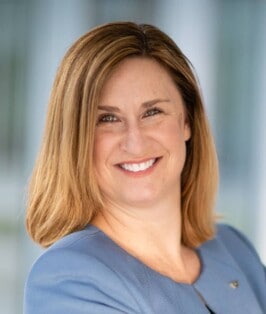
“My professional world shapes my perspectives, as does my personal life. Both have made me into who I am today. I have two daughters, and my role as a leader, engineer, and educator has certainly impacted how I have guided them through the years.”
– Julia Ross, Ph.D., Paul and Dorothea Torgersen Dean of Engineering, Virginia Tech
Virginia Tech was established in Blacksburg in 1872 as Virginia Agricultural and Mechanical College, becoming Virginia Polytechnic Institute in 1944 and Virginia Polytechnic Institute and State University in 1970. With more than 36,000 students (81% undergraduate and 19% graduate) in nine colleges, including agriculture, natural resources, liberal arts and human sciences, science, architecture, business, medicine, veterinary medicine, and engineering, the university’s motto is Ut Prosim (that I may serve).
The College of Engineering offers 14 undergraduate majors, 16 doctoral degrees, and 19 master’s programs, and is nationally ranked in many areas. The college is home to more than 11,000 students and graduated 1,784 bachelor’s-degreed engineers in 2018. The 384 faculty are distributed across 12 departments. Their mission is to educate and inspire students to be “critical thinkers, innovators, and leaders” and to create “new knowledge, technologies, and sustainable solutions that address complex social and technical challenges.”
Campbell University in Buies Creek, North Carolina, started out in 1887 as Buies Creek Academy, evolving to Campbell Junior College to become Campbell University in 1979. The university aims to prepare students for “purposeful lives and meaningful service” with a “worldview informed by Christian principles and perspectives.” It offers more than 100 degree programs, including degrees in medicine, law, and divinity, to 6,500 students (two-thirds undergraduate and one-third graduate and professional).
The School of Engineering was established in 2014, admitting its first students in the fall of 2016 and graduating its first class this spring. The Bachelor of Science in engineering degree offers concentrations in mechanical, electrical, and chemical engineering. The program has grown faster than anticipated and currently enrolls more than 200 students, with a mission to “provide transformational learning experiences for a diverse community of future leaders through an integrated and experiential approach to engineering education, grounded in meaningful service and Christian principles.”
Drs. Ross and Carpenter agreed to share their insights in the midst of a very challenging time for higher education. As colleges and universities adapt to remote learning and consider how to move forward in a changing environment, engineering innovation is being put to the test.
Dr. Carpenter observed that, even before COVID-19, higher education was facing numerous challenges, from changing demographics to financial issues to public sentiment about the value of education, but she believes that engineers are well positioned to navigate these changes. “Engineers are problem solvers. They excel at taking fuzzy problems and designing innovative solutions to them with the tools and resources at hand, under time limitations. But to do so, engineers need to be trained differently in the 21st century than they were in the 20th.”
She believes that the program she is building at Campbell will prepare her students to succeed in changing times. “We focus on developing resilience, community, professionalism, ethics, relevance, excellence, service, and ownership (our eight core values) in our graduates. It is this type of training that puts them in high demand and has positioned them to be successful, well before the current crisis materialized.”
SWE Magazine asked the deans to describe what they do. Both deans have comprehensive visions for their roles and are responsible for a wide range of activities.
Dr. Carpenter: “Deans do many things! Since I am a founding dean (meaning that I am the first dean and building the new program from scratch), my duties are a little different from the dean of an established program. I am the chief cheerleader for our program, working to get the word out about our innovative approach to engineering education to prospective students, faculty, staff, industries, government and nonprofit agencies, organizations, etc. … We have had to create everything — our mission, vision, and values; a modern curriculum; innovative facilities; processes and procedures for recruiting, admissions, advising, evaluation of faculty and staff, lab safety … the list is endless! We have also had to revise a lot of these as our student population, faculty, staff, and facilities have grown. What works with one class of students and three faculty may not work as well with 200 students and 10 faculty. I teach one class each semester (which is unusual for a dean, but the tradition at our university). I really enjoy the variety of activities and working toward excellence in all that we do. I am a big believer in creating a compelling vision, then empowering everyone — faculty, staff, students, alumni, advisory boards, friends, and supporters — to help us make that vision a reality and do it to the best of our ability. Everyone wants to be part of an excellent, successful program that is striving to do the right things, the right way.”
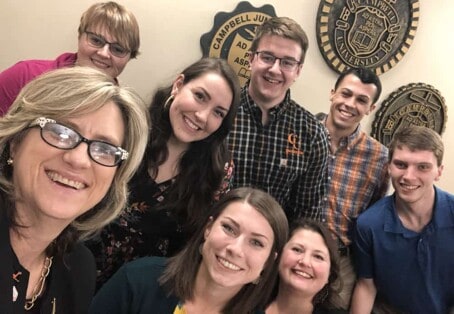
Dr. Ross: “To me, the most important role of the dean is to facilitate the success of the faculty, staff, and students. The dean is also the ‘face’ of the college, its most public figure. At the end of the day, the dean is responsible for everything that happens in the college. That includes overseeing the academic enterprise and degree programs; enrollment management; undergraduate and graduate student experience and success; the research enterprise; budget planning, allocation, and realignment; responsibility for physical infrastructure, including the planning and funding of new buildings; long-term visioning; development of relationships with alumni and corporate partners; fundraising; communications; and everything in between. We have metrics and targets for all of these areas, and I am responsible for making sure we achieve them. The dean also represents the college at events, including commencement, awards ceremonies, sporting events, alumni events, etc. My direct reports include the engineering department heads and six associate deans.”
Drs. Ross and Carpenter enjoy the variety of activities that come with being dean, but the demands of the role can be challenging.
Dr. Carpenter: “I really enjoy speaking to people about our program, spreading the word about the innovative things we do, and the success of our students and faculty. To see the enthusiasm, excitement, and pride is rewarding and definitely the best thing about my job. I enjoy getting to know our students and their families, watching them grow from high school students into awesome engineering professionals. Their successes are our successes. I also really enjoy the variety of activities from day to day. Processing paperwork, writing reports, etc. are probably the least-interesting part of my job. These can be opportunities to tell your story (which is fun), but not always.”
Dr. Ross: “The thing I like most about being a dean is that the position is so broad. It touches everything that happens in a college, and I spend every day thinking about how to make the college better and stronger. No two days are the same. It is also a position that allows you to drive change. The worst part about being a dean is that my calendar is not my own and is highly structured. There are also many events in the evening and on weekends. It can be hard to carve out time to think and do work. Everyone wants time with the dean, so it is a constant balancing act performed in public view.”
As the founding dean of a new program, Dr. Carpenter can point to some very specific accomplishments, while Dr. Ross is focused on how to build on the success of an existing program.
Dr. Carpenter: “Graduating our inaugural class [in May 2020] is our biggest accomplishment! We will be going through our initial accreditation visit this fall, so that is our next milestone. After that, we will take a breath and look at adding other concentrations, perhaps a master’s program, growing our students and faculty, and eventually building a new building.”
Dr. Ross: “We have a new strategic plan for the college that charts our direction, and we are using it to guide how we focus our efforts and allocate our resources. Our three strategic priorities include strengthening our community, building the infrastructure and resources to support our vision, and aligning our education and research for impact in a rapidly changing world. Diversity and inclusion is very important to us and is a major focus. We are also prioritizing our physical infrastructure in terms of building new space to accommodate our growth in enrollment and research, as well as renovation of existing buildings. Virginia Tech is building an Innovation Campus in Alexandria, Virginia, and we are heavily involved in that effort, expanding our footprint, research portfolio, and degree offerings in northern Virginia.”
On change and future aspirations
Change is a constant in engineering and in higher education. New and existing programs face different types of changes. Drs. Carpenter and Ross reflected on the changes they have made at their institutions and their aspirations for the future.
Dr. Carpenter: “Engineering was a new area for the institution, which previously has had strong health science, business, and pre-pharmacy programs, as well as strong graduate and professional programs in law, pharmacy, and medicine. An engineering program has brought a number of changes, from new nonengineering courses needed to support our program to revised processes and procedures for labs, placement, and facilities management. Campbell has a great team of faculty, staff, and administrators who have embraced and been so supportive of our program. We couldn’t have built the program without them. We have also received a great deal of national attention and recognition due to our innovative approach to engineering, which has been rewarding to see.”
Dr. Ross: “I hope that we become a more nimble institution. One that respects and builds on our history and legacy, but is also willing to take some risk, experiment, learn, and adapt. The world is changing quickly, and we need to be able to respond accordingly. We need to get more comfortable with change. I also hope we become a more diverse community in which all voices feel heard. I truly believe that for us to be our very best, we need all the talent, creative ideas, energy, and vision we can muster. We will be our best when the College of Engineering at Virginia Tech truly represents the Commonwealth that we serve.”
Both Dr. Carpenter and Dr. Ross see women as collaborative leaders.
Dr. Carpenter: “Research shows that women lead differently. I didn’t realize this early in my leadership career. I simply did things the only way I knew to do them. But women tend to be more collaborative and supportive, better listeners, less dictatorial. These make for a better leader, a better team, and a better work environment.”
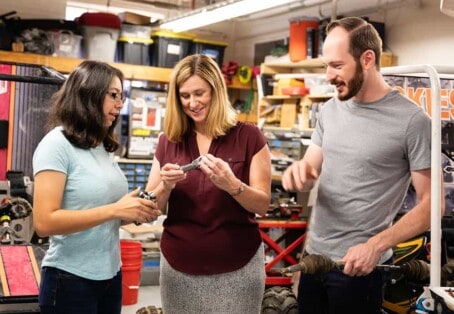
Dr. Ross: “My natural inclination is to use a collaborative style in most situations. That’s what comes easiest to me. But with experience, I have learned to use other styles as needed, like tools in a toolbox. I do think that I can relate to issues faced by our female students and faculty differently because I am a woman.”
When asked how they decided to become engineers, Dr. Carpenter pointed out that her degrees are in math, but as a faculty member in a combined college of science and engineering, she soon became comfortable in the engineering world. Dr. Ross initially thought to pursue a career in medicine, but decided that research in bioengineering was a good fit.
Dr. Carpenter: “Not long after receiving tenure, I was asked to serve as an engineering department head in the newly merged College of Engineering and Science at Louisiana Tech University. The administrative style there was interdisciplinary, with leaders chosen for their skills, not their discipline. I spent a decade as a department head for engineering programs (we rotated program responsibilities, an unusual model, so I had responsibility for all of the engineering and engineering technology programs, as well as computer science, during that time frame). I served as an associate dean for engineering for eight years before retiring and moving to North Carolina to assume my current position as founding dean of engineering at Campbell University.”
Dr. Ross: “I decided to pursue an engineering career as I was finishing my B.S. degree in chemical engineering at Purdue. I actually thought a lot about whether I wanted to go to graduate school in engineering or medical school. In the end, I decided on graduate school because I really enjoyed my undergraduate research experiences both on campus at Purdue and during my co-op. I decided that a graduate degree with a research focus on bioengineering would be a great combination for my interests.”
Being open to opportunities to learn new skills and take on challenges led to leadership roles for both deans.
Dr. Carpenter: “I took advantage of my opportunities to serve in leadership roles, starting early in my career, right after I received tenure. Some of these roles have been on my campus, others have been serving in officer positions, as well as board and committee positions, for national professional organizations. While I have had an unusual leadership path, it has provided me the oppor-tunity to gain a variety of leadership skills over more than two decades, as well as develop a strong national network and international understanding of engineering education.”
Dr. Ross: “The biggest decision I made was to accept a department head position, which put me on the path to administrative work. I made the decision reluctantly at the time, but soon learned that I liked the work. Over the course of my career, I have accepted opportunities to learn new things and have taken on roles and responsibilities that would stretch me and make me grow. That has allowed me to develop the broad skill set needed as a dean.”
Early support from parents, teachers, and mentors, as well as unexpected interactions, influenced the deans’ career paths.
Dr. Carpenter: “My junior high and high school math teachers (two women, in particular) were supportive and encouraged me to pursue math. In the 1970s, that was important. My parents were always supportive, and I now know that their belief in my abilities and the suitability of my pursuing a STEM career were really important to my success. I have had the opportunity to attend great universities and work at supportive institutions that saw my potential and gave me opportunities to develop it.”
Dr. Ross: “I have had a number of amazing mentors and colleagues over the course of my career who have supported me and helped me grow. There are too many people to list by name. I have also had several chance encounters that I can point to that shifted my trajectory and made a difference. For example, I decided to look into Rice University for graduate school (I had never heard of it) because of a quick conversation with a professor in a hallway my senior year at Purdue. That encounter put me on a direct path to my chosen research direction in bioengineering. And, unfortunately, I have also had some extremely difficult times with individuals who were not supportive of me. While hard to see at the time, I now understand how those events shaped me, forced me to learn and be better, and strengthened my resolve.”
Both deans have been active in professional societies and credit that experience with supporting their career growth.
Dr. Carpenter: “Serving as the SWE faculty advisor at Louisiana Tech University was one of the first official roles that I had in a professional society. … I served as the faculty advisor/counselor coordinator [for the Society] about a decade ago. I have been active in the Mathematical Association of America, the Women in Engineering ProActive Network, and the American Society for Engineering Education for many years, as well. … I have served on the boards of all three organizations and chaired numerous committees, councils, task forces, etc. Professional societies help you continue to grow and learn. They provide numerous opportunities to lead and serve. They also help you grow a wonderful national and even international network of colleagues and friends. I strongly encourage our students to join and become active in professional societies for all of these reasons.”
Dr. Ross: “Early in my career, I was very active in professional societies, and it really helped me meet people and grow my network. It also provided an early opportunity to try on leadership roles. Many long-standing professional relationships that I cherish began there. I am still active in professional societies as dean, but my role is now more one of service. It’s time to give back.”
Drs. Carpenter and Ross are both mothers and recognize the rewards and challenges of combining a family with a career and leadership roles.
Dr. Carpenter: “As a mother, [my career] has helped me be a better teacher and mentor to my own children. It has also meant that I have been a role model to my children and even my husband. … Both of my children are in graduate school, working toward a Ph.D. and a master’s, respectively. It has meant that I have had to work and travel a great deal. But a few years ago, I was cleaning off my desk at work (a task I usually save for the summer, when things slow down a little). I discovered a note that my son, then an undergraduate in engineering at my institution, had left for me. In it, he told me not to worry so much about them. That they could all see how hard I worked, both at home (taking care of not only them, but my two elderly and ill parents) and at my job, and that they were very proud of me. And, lastly, he said that everything would be okay. We mothers are often too hard on ourselves. We forget that our families are resilient and cheering us on.”
Dr. Ross: “My professional world shapes my perspectives, as does my personal life. Both have made me into who I am today. I have two daughters, and my role as a leader, engineer, and educator has certainly impacted how I have guided them through the years.”
Women in leadership roles face many challenges. Drs. Ross and Carpenter offered reading suggestions that provide useful perspectives.
Dr. Carpenter: “I have read many, many articles and books on leadership and frequently am invited to speak on this topic. For women, I think it is important to understand the challenges that are unique to women in leadership roles. There are strategies for managing around those, but it is key that you realize the impact of implicit bias and things like microaggressions. One book I always recommend is Why So Few? by the American Association of University Women. It is available for free download on their website. It does a great job of outlining key challenges women face, the research behind them, and best-practice strategies for managing around them.”
Dr. Ross: “Sometimes, being in a leadership position can be lonely, especially for women in engineering leadership roles. I am inspired by personal stories shared in Rising to the Top: Global Women Engineering Leaders Share Their Journeys to Professional Success [by the International Federation of Engineering Education Societies and the Global Engineering Deans Council]. There is a larger community out there than many realize.”
Closing thoughts
In closing, both deans offered words of advice and encouragement for readers.
Dr. Carpenter: “I have already talked about many ways that professional societies like SWE can help advance your career. Take advantage of all that SWE has to offer, whether you are a student or a professional member. Be active in your section, attend conferences, sign up for webinars and volunteer. Learn all you can, take advantage of your opportunities (you never know where they will lead!), and look for ways to mentor those coming along behind you.”
Dr. Ross: “Keep learning and growing and stretching. Believe in yourself and your abilities. Don’t listen to the naysayers (this is hard). Be fearless even when you don’t feel that way (this is also hard). I find it helpful to ask myself, ‘What would I do if I wasn’t afraid?’ Then I try to do just that. I’ve found that if you do these things, amazing opportunities arise. Over the arc of a career, those opportunities can take you places you never could have imagined.”
Author
-
Peggy Layne, P.E., F.SWE, is former assistant provost and director of the ADVANCE program at Virginia Tech. She holds degrees in environmental and water resources engineering and science and technology studies. She is the editor of Women in Engineering: Pioneers and Trailblazers and Women in Engineering: Professional Life (ASCE Press, 2009). A Fellow of the Society of Women Engineers, Layne served as SWE FY97 president.


